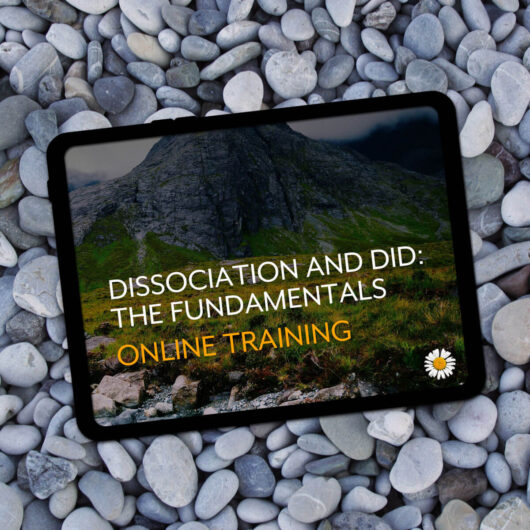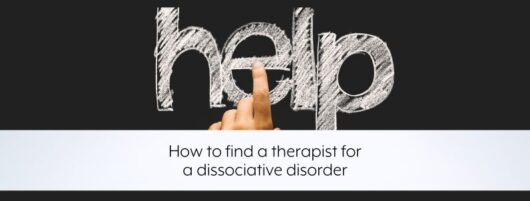
Getting help
‘It takes a tribe to heal trauma’ because evolutionarily we need people to feel safe again. But where do we get the help we need?

‘It takes a tribe to heal trauma’ because evolutionarily we need people to feel safe again. But where do we get the help we need?
It ought to be the most obvious thing in the world, that as a society we support those who have suffered trauma – especially chronic childhood trauma. But unfortunately that’s not the case.
Part of the reason for this is that, in Joanna Moncrieff’s words, we ‘medicalise misery’ – we insist that people (like me) are mentally ill, as if something has gone wrong with our brain, rather than ‘traumatised’, which is a natural, in-built, logical response to something going wrong in our experience (for example, abuse).
Getting help within the medical model for the impacts of traumas therefore harder than it ought to be. We are often forced to participate in systems of care which don’t always feel very caring, and pursue labels and diagnoses which may (or may not) provide access to ‘treatment’, but which may in the process increase our stigma and shame.
My own pathway, out of necessity, has been through paying privately for psychotherapy. It has been a means to an end but it cannot be the ideal for us as a society. There are no easy answers at the moment, but this section provides a few pointers and areas of discussion.
What should not be in doubt – but which, because of the nature of the trauma we have suffered, is often the biggest thing we doubt – is that we are worthy of care and compassion, and of getting the help we need. Sometimes our biggest battle is being willing to battle for what we do not believe we deserve – the right help.

When faced with overwhelming trauma, dissociation can be the only logical thing our brains are able do to help us to survive. Join me as I explore what happens in the brain during trauma, why dissociation is the brain’s best way of surviving when overwhelmed by life-threat, how dissociative disorders develop and how best to support trauma survivors rediscover a sense of safety with a dysregulated nervous system.
Start Learning
Is recovery possible? I'd say it is … based not just on my own personal experience, but on the fact that it’s how our bodies and brains are designed by default. Often when people don’t recover, it’s a problem with the therapy or the ‘treatment’, rather than a problem with a person. In this thought-provoking podcast, I bring hope for healing.
Listen Now
Is recovery from trauma and abuse - resulting in dissociation and even a dissociative disorder - possible? That's the subject of this podcast where I talk about the vulnerability of hoping for good things, the difference between correlation and causation, and the difference between hoping for and planning for.
Listen Now
The recommended treatment for dissociative disorders is psychotherapy, but how do you go about finding a therapist or counsellor? This article guides you through the process, either via the NHS or privately.
Read More
It’s scary to think you’ve ‘gone mad’. It’s scary to think you have some serious, incurable ‘mental illness’. It’s scary to not understand what on earth is going on in your brain. And perhaps what’s even scarier is finding out that what is ‘wrong’ with you has a name: dissociative identity disorder.
Read MoreGet free Carolyn Spring Trauma Resources when you join my mailing list.